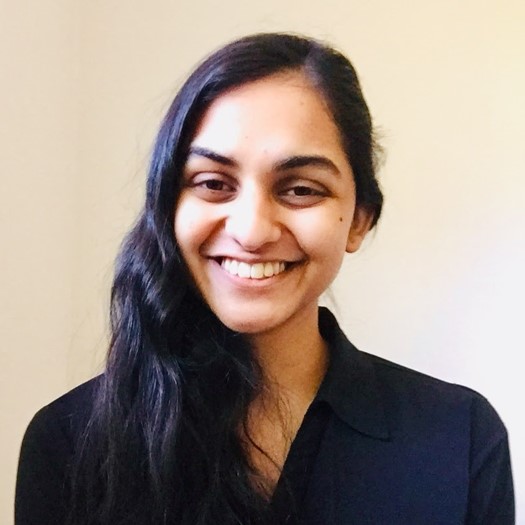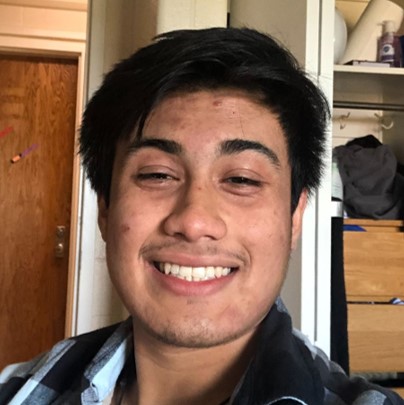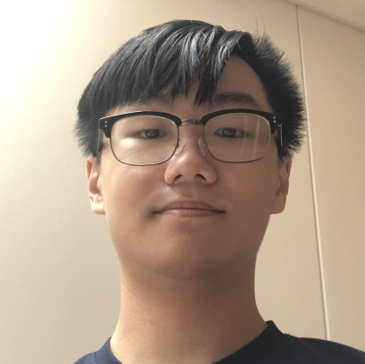FIRE198: FIRE Semester 2
Section 0301: Autonomous Unmanned Systems
Welcome to FIRE 198 (Section 0301), Autonomous Unmanned Systems course by Dr. Nitin J. Sanket.
What is this course about?
The goal of this course is to build fundamental conceptual skills and get hands-on experience with practical tools to build autonomous robots. In particular, the course is focused on perception, planning, control and AI to enable autonomy on mobile robots. Come and join me in building the next generation of autonomous robots to change the world to become a better place. More details about the course are given below.
Team
Asst. Cln. Professor
he/him/his
Assignments
Class Slides
| Class Date |
Slides/Resources |
Class Topic(s) |
| Jan 25 2022 |
Slides |
Introduction and Logistics |
| Feb 01 2022 |
Slides |
What is a Robot? And Interpreting Color |
| Feb 08 2022 |
Slides |
Color Thresholding, Edges and Morphological Operations |
| Feb 15 2022 |
Slides |
The World Of Sensors |
| Feb 22 2022 |
Slides |
Controlling Your Robot |
| Mar 01 2022 |
Slides |
Math – The Universal Language of Roboticists! |
| Mar 08 2022 |
Slides |
Finding Patterns! |
| Mar 15 2022 |
Slides |
Aerial Robots |
| Mar 22 2022 |
- |
SPRING BREAK |
| Mar 29 2022 |
Slides |
Deep Learning |
| Apr 05 2022 |
Slides |
Guest Lectures 1: Chethan Parameshwara |
| Apr 12 2022 |
Slides |
Guest Lecture 2: Naitri Rajyaguru |
| Apr 19 2022 |
Slides |
Guest Lectures 3: Chahat Deep Singh |
| Apr 26 2022 |
Slides |
Guest Lectures 4: Nakul Garg |
| May 03 2022 |
Slides |
DEI in Robotics |
Piazza and ELMS
If you haven't done so already, register yourself on
Piazza with your terpmail. We'll be using Piazza for all announcements and discussions. Please use Piazza to contact me (Feel free to use private posts on Piazza to contact me). Please do
NOT contact me via email unless it's an emergency, and do
NOT contact me on any social media platform such as Facebook or WhatsApp (please respect my privacy) regarding course content. If you want to have a chat about my research, chat with me after class.
All the assignments will be released on
this website page.
All the assignments are to be submitted using
ELMS. If you find any errors/typo in the course github
website, please edit the required markdown '.md' file and send a 'pull request'. If you don't know how to use pull request, please check out
this tutorial.
Submission Policy
The submissions are made through ELMS (unless otherwise specified) with the name
ASNk_DirID.pdf (where
k is the assignment number, for e.g., for the first assignment, this would be
ASN1_DirID.pdf). Here,
DirID is your directory ID, i.e., the first part of your terpmail email address. For e.g., if your terpmail email address is
ABCD@terpmail.umd.edu, then your
DirID is
ABCD. Keep your submissions professional, grammatically correct without spelling mistakes. Do not use slangs and chat shorthands on your submissions.
You'll get 25% grade penalty for not following the submission guidelines.
Late Submission Policy
This course moves quickly, and concepts tend to build on top of each other. Therefore it's very important to keep up with the material. To encourage this, late assignments are penalized for 25% per day after the due date. But life is unpredictable; we all need a break sometimes. So, we allow you
six late days, to spend on any assignment(s) except the final assignment (ASN8). You may submit an assignment late (after the due date) using a late day without any penalty. Think of a late day as pushing the deadline back by a day. So, to get full credit on a 2-days-late assignment, you'd need to use two late days. Late days can only be spent as full days (i.e., you can't use only half a late day for an assignment you submit 12 hrs late). If you are using a late day, mention it in the title of your submission as
"USING X LATE DAY(S)" and post a comment on ELMS about the usage of a late day. We expect you to keep track of number of late days you have remaining and notify us of usage of one or more late days. We will default for penalty if we don't see the mention of late day usage as a comment on ELMS on that particular assignment. Again,
If you are using a late day, mention it in the title of your submission as "USING X LATE DAY(S)".
Collaboration Policy and Honor Code
Collaboration is encouraged, but one should know the difference between collaboration and cheating. Cheating is prohibited and will carry serious consequences. Cheating may be defined as using or attempting to use unauthorized assistance, material, or study aids in academic work or examinations. Some examples of cheating are: collaborating on an take-home exam or homework unless explicitly allowed; copying homework; handing in someone else's work as your own; and plagiarism. You are welcome to collaborate with your peers on Piazza and in person. However it's important that the work you submit is an expression of your understanding, and not merely something you copied from a peer. So, we place strict limits on collaboration: Firstly, you must clearly cite your collaborators by name at the top of your report. This includes Piazza posts reference. You may not share or copy each other's code. You can discuss how your code works, and the concepts it implements, but you can't just show someone your code. You may use free and publicly available sources, such as books, journal and conference publications, and web pages, as research material for your answers. (You will not lose points for using external sources.) You may not use any service that involves payment, and you must clearly and explicitly cite all outside sources and materials that you made use of. We consider the use of uncited external sources as portraying someone else's work as your own, and as such it is a violation of the University's policies on academic dishonesty. Instances will be dealt with harshly and typically result in a failing course grade. Unless otherwise specified, you should assume that that the UMD Code of Academic Integrity applies. Unless otherwise specified, you should assume that that the
UMD Code of Academic Integrity applies.










